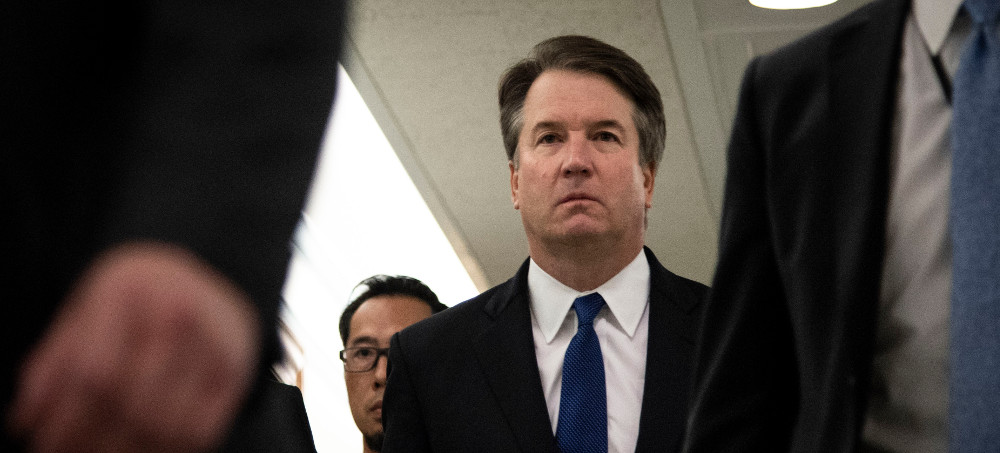I'd Like to Hear Christopher Wray Explain Why the FBI Used This Memo to Avoid Investigating Brett Kavanaugh
Charles Pierce Esquire Supreme Court Justice Brett Kavanaugh. (photo: Getty)
Supreme Court Justice Brett Kavanaugh. (photo: Getty) I'd Like to Hear Christopher Wray Explain Why the FBI Used This Memo to Avoid Investigating Brett Kavanaugh
Charles Pierce Esquire
It looks like Senator Sheldon Whitehouse will see to it that he does.
Heretofore, Wray and the FBI have relied upon a now 11-year-old Memorandum of Understanding that they said limited the Bureau’s ability to conduct such an investigation. But, as The Guardian reports, this cover may be a threadbare one.
The FBI said in its letter to two senators – Sheldon Whitehouse and Christopher Coons – that the FBI did not have the authority under the 2010 MOU at the time to “unilaterally conduct further investigative activity absent instructions from the requesting entity”. In other words, the FBI has said it would have required explicit instructions from the Trump White House to conduct further investigation under the existing 2010 guidelines on how such investigations ought to be conducted.
But an examination by the Guardian of the 2010 MOU, which was signed by the then attorney general, Eric Holder, and then White House counsel, Robert Bauer, does not make explicitly clear that the FBI was restricted in terms of how it would conduct its investigation. The MOU, which was released in court documents in 2019 as part of Freedom of Information Act litigation brought against the US government by Buzzfeed, also does not explicitly state that the White House had the power to set the process parameters on any investigation. The MOU does seem to suggest that the White House had the authority to limit the FBI to investigate particular issues and questions.
One of the senators bulldogging this issue is Sheldon Whitehouse, Democrat of Rhode Island, who’s interested in a number of unresolved issues regarding the Kavanaugh confirmation—including, intriguingly, the questions surrounding the evaporation of Kavanaugh’s heavy personal debts. Whitehouse is pretty clearly out of patience with Wray and with the FBI.
In a statement to the Guardian, Whitehouse, the senator from Rhode Island who has led Democrats’ demand for answers on the investigation, said: “In its years-late response to our questions, the FBI leaned hard on the notion that this MOU limited its authority to be the FBI and investigate wrongdoing. Now that we have the MOU, it’s even harder to understand the Bureau’s excuses for ignoring credible information it received. Director Wray ought to be ready to answer my questions about this episode – I won’t stop asking until he does.”
There’s still a lot that’s hinky about that whole process. It was a fair demonstration, on the part of all concerned, of the concept of protesting too much, especially on the part of the nominee and of the then-Judiciary chairman Senator Lindsey Graham. Unless it gets bogged down on the micro-issues of what the MOU really means, this could really be a show.
